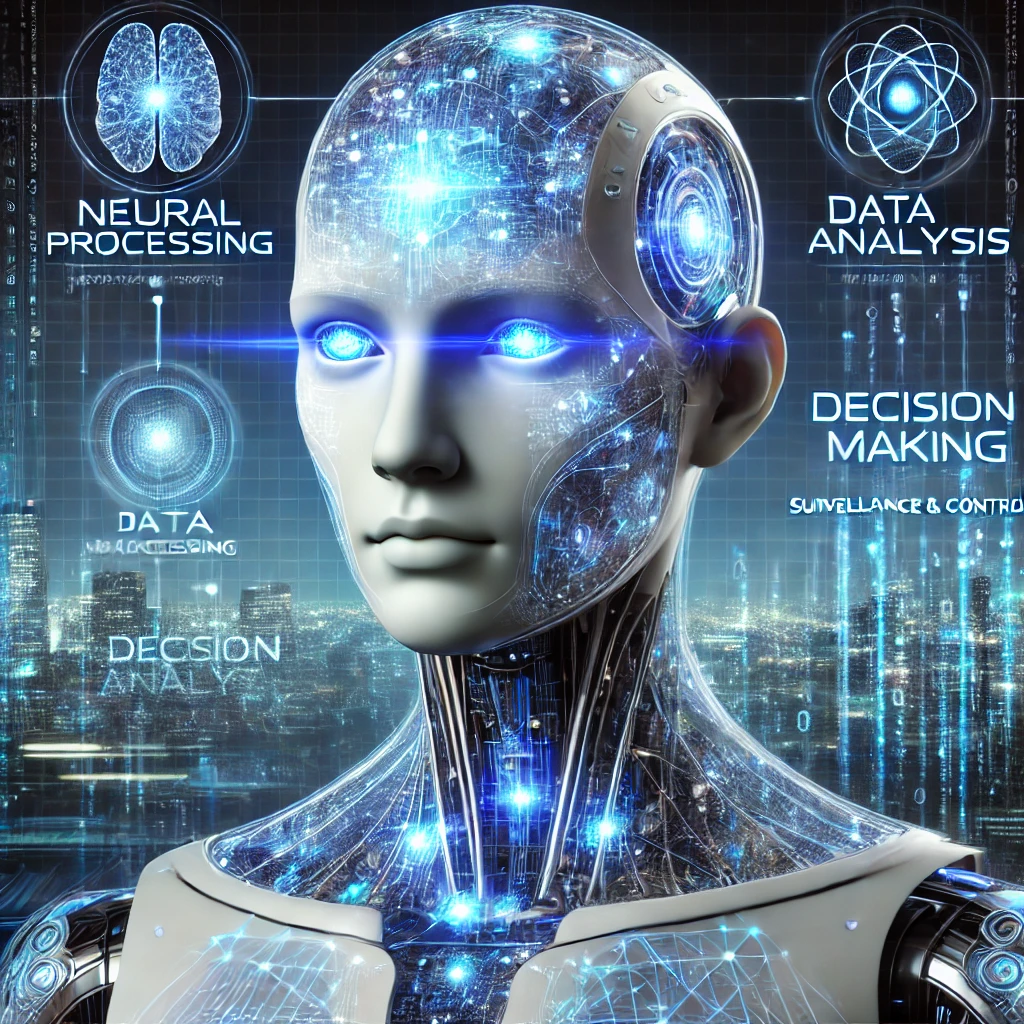The Dark Side of AI: How Artificial Intelligence is Quietly Changing Your Life
Introduction
Artificial Intelligence (AI) is no longer a futuristic concept; it is deeply integrated into our daily lives. From personalized recommendations on Netflix to voice assistants like Siri and Alexa, AI is making life more convenient. However, while AI offers numerous benefits, it also has a dark side that remains largely unnoticed by the general public. This article explores how AI is quietly reshaping our lives in ways that may not always be in our best interests.
1. Surveillance and Loss of Privacy
Overview
AI-driven surveillance systems are becoming increasingly sophisticated. Governments, corporations, and even hackers are using AI-powered tools to monitor individuals, track movements, and analyze personal behaviors.
How AI is Used for Surveillance
- Facial Recognition Technology: Used in public spaces, airports, and even social media platforms to identify individuals.
- Predictive Policing: AI algorithms analyze data to predict where crimes may occur, but this often leads to biased and discriminatory practices.
- Social Credit Systems: Countries like China have implemented AI-based social credit systems that monitor citizens’ behavior and determine their access to services.
The Dangers
- Loss of anonymity and increased government control.
- Potential misuse of data by corporations and malicious entities.
- AI-powered hacking tools that can breach personal security systems.
2. AI and Job Displacement
Overview
Automation and AI are replacing human jobs at an unprecedented rate. While AI increases efficiency, it also eliminates the need for human workers in various sectors.
Jobs at Risk
- Manufacturing & Logistics: AI-driven robots are replacing factory workers and warehouse staff.
- Customer Service: Chatbots and virtual assistants are taking over customer support roles.
- Finance & Banking: AI-powered trading bots and fraud detection systems are reducing the need for financial analysts.
- Creative Professions: AI-generated content, music, and art threaten jobs in the creative industry.
The Consequences
- Increased unemployment and economic inequality.
- The need for reskilling and adaptation to AI-dominated industries.
- Ethical concerns regarding AI taking over decision-making roles.
3. Algorithmic Bias and Discrimination
Overview
AI systems learn from data, and if that data contains biases, the AI will replicate and amplify them.
Examples of AI Bias
- Hiring Discrimination: AI-driven hiring tools have been found to favor certain demographics over others.
- Racial and Gender Bias: Facial recognition systems have higher error rates when identifying people of color and women.
- Healthcare Disparities: AI-based healthcare diagnostics often favor datasets from developed countries, leading to misdiagnosis in underrepresented groups.
The Dangers
- Systemic biases become deeply embedded in AI-driven decisions.
- Marginalized communities face discrimination in employment, policing, and healthcare.
- Lack of accountability in AI decision-making processes.
4. Deepfakes and Misinformation
Overview
AI-generated deepfake technology can manipulate videos, images, and audio to create convincing but false content.
How AI is Used for Misinformation
- Fake Political Campaigns: AI-generated videos of politicians making false statements.
- Financial Scams: AI-generated voices used in phishing scams.
- Fake News Articles: AI can generate realistic news stories to spread false information.
The Dangers
- Manipulation of public opinion and political instability.
- Increased difficulty in distinguishing truth from fiction.
- Potential for blackmail and reputation damage.
5. Weaponization of AI
Overview
AI is increasingly being integrated into military and security applications, raising ethical and safety concerns.
Examples of AI in Warfare
- Autonomous Drones: AI-powered drones can target individuals without human intervention.
- Cyber Warfare: AI-driven hacking tools can breach national security systems.
- Automated Weapon Systems: AI-controlled weapons that operate independently in combat.
The Dangers
- Lack of human oversight in life-and-death decisions.
- Increased risk of AI-driven conflicts.
- Possibility of AI systems being hacked and turned against their creators.
6. Mental Health and AI Manipulation
Overview
AI is designed to capture and retain user attention, often at the cost of mental well-being.
How AI Affects Mental Health
- Social Media Algorithms: AI-driven platforms prioritize engaging (often negative) content, leading to addiction and anxiety.
- Online Echo Chambers: AI filters content to reinforce personal beliefs, reducing exposure to diverse viewpoints.
- AI-Generated Influencers: Unrealistic AI-generated personas set unattainable beauty and lifestyle standards.
The Dangers
- Increased rates of anxiety, depression, and loneliness.
- Reduced critical thinking and exposure to misinformation.
- Manipulation of consumer behavior through AI-driven advertising.
Conclusion
Artificial intelligence is revolutionizing the world, but it also comes with significant ethical and societal risks. From mass surveillance and job displacement to deepfake misinformation and AI-driven weaponry, the dark side of AI is already affecting our lives in ways many do not realize.
What Can Be Done?
- Regulation and Ethical AI Development: Governments and organizations must enforce responsible AI usage.
- Increased AI Literacy: Public awareness and education on AI risks.
- Human Oversight: AI should assist, not replace, human decision-making.
As AI continues to evolve, it is crucial to balance innovation with ethical responsibility. By understanding AI’s darker aspects, we can work towards a future where AI benefits humanity without compromising security, privacy, and ethics.
What’s Next?
- Follow our blog Creativelots.online for more in-depth articles on technology and AI.
- Join discussions on AI ethics and regulations.
- Stay informed about AI advancements and their impact on society.
